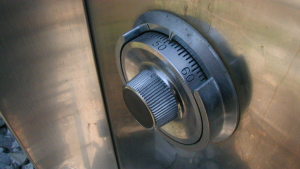A new IEEE working group has been set up with the goal to deliver a new DRM standard that gives consumers back some of the rights they've lost under today's DRM.
Unlike physical media, digital content with DRM means users cannot share it privately with even a small group of people, the way you would say loan a CD to a friend. But the IEEE wants to give users back this right, to somehow provide users with the ability to privately share some content, while still preventing uploading and sharing with everyone.
Ars technica goes into the details of how the proposed system will work, but in essence it works on the principle that every piece of content that is purchased will have an unique key that can be moved to someone else of your choosing. Once moved, you lose the ability to play the files, and your "friend" can also choose to move the key to somewhere. It's the same as loaning a CD to your friend who decides to loan it to someone else - there's always the risk you won't get back the stuff you've loaned out, but the working group believes this will make people more careful when sharing stuff, and prevents mass distribution.
The working group also understands that many do not think any DRM solution is workable or good for consumers, but their feeling is that there has to be some middle ground between consumers who feel this way and the content protection hardliners.
More:
Unlike physical media, digital content with DRM means users cannot share it privately with even a small group of people, the way you would say loan a CD to a friend. But the IEEE wants to give users back this right, to somehow provide users with the ability to privately share some content, while still preventing uploading and sharing with everyone.
Ars technica goes into the details of how the proposed system will work, but in essence it works on the principle that every piece of content that is purchased will have an unique key that can be moved to someone else of your choosing. Once moved, you lose the ability to play the files, and your "friend" can also choose to move the key to somewhere. It's the same as loaning a CD to your friend who decides to loan it to someone else - there's always the risk you won't get back the stuff you've loaned out, but the working group believes this will make people more careful when sharing stuff, and prevents mass distribution.
The working group also understands that many do not think any DRM solution is workable or good for consumers, but their feeling is that there has to be some middle ground between consumers who feel this way and the content protection hardliners.
More:




Comment